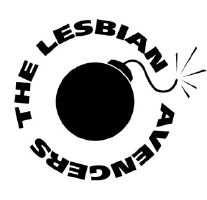
 In the beginning there was only The Gully online magazine, offering "queer views on everything." Begun in 2000, it encouraged activism and expanded gay issues by typically juxtaposing articles like Torture and America with Gay Russia Today. The Gully also explored how progressive social change depends on democratic essentials like free speech. Our groundbreaking article Interview: Banishing Fear in Iran profiled a lesbian writer whose blog had been suppressed because of censorship.
In the beginning there was only The Gully online magazine, offering "queer views on everything." Begun in 2000, it encouraged activism and expanded gay issues by typically juxtaposing articles like Torture and America with Gay Russia Today. The Gully also explored how progressive social change depends on democratic essentials like free speech. Our groundbreaking article Interview: Banishing Fear in Iran profiled a lesbian writer whose blog had been suppressed because of censorship.
Homocom was founded in 2001 as it became apparent that The Gully and The Gully en español were part of a larger project of LGBT media and communications. Activists needed to learn how to write press releases. Academics needed to learn how to share their knowledge in plain language. Ordinary people needed models of how to get the history of their communities down in writing.
In November 2002, we began offering journalism workshops, internships, and online resources for media skills and oral history projects.
After working flat out for seven years, we decided to end publication of The Gully, and take a substantial break while we discovered where we fit into the changing world of communication. Journalism was shifting to blogs, microblogging, and networking tools like Facebook.
 We knew what we had to do after the resounding same-sex marriage defeat in California in 2008. This time, we'd begin a history project focusing on successful activist groups like the Lesbian Avengers. Not to preserve them for the future, but because we need to reclaim their skills now, right now.
We knew what we had to do after the resounding same-sex marriage defeat in California in 2008. This time, we'd begin a history project focusing on successful activist groups like the Lesbian Avengers. Not to preserve them for the future, but because we need to reclaim their skills now, right now.
You want change? Share knowledge.


Lesbian Avenger Dyke March, NYC, 2002.